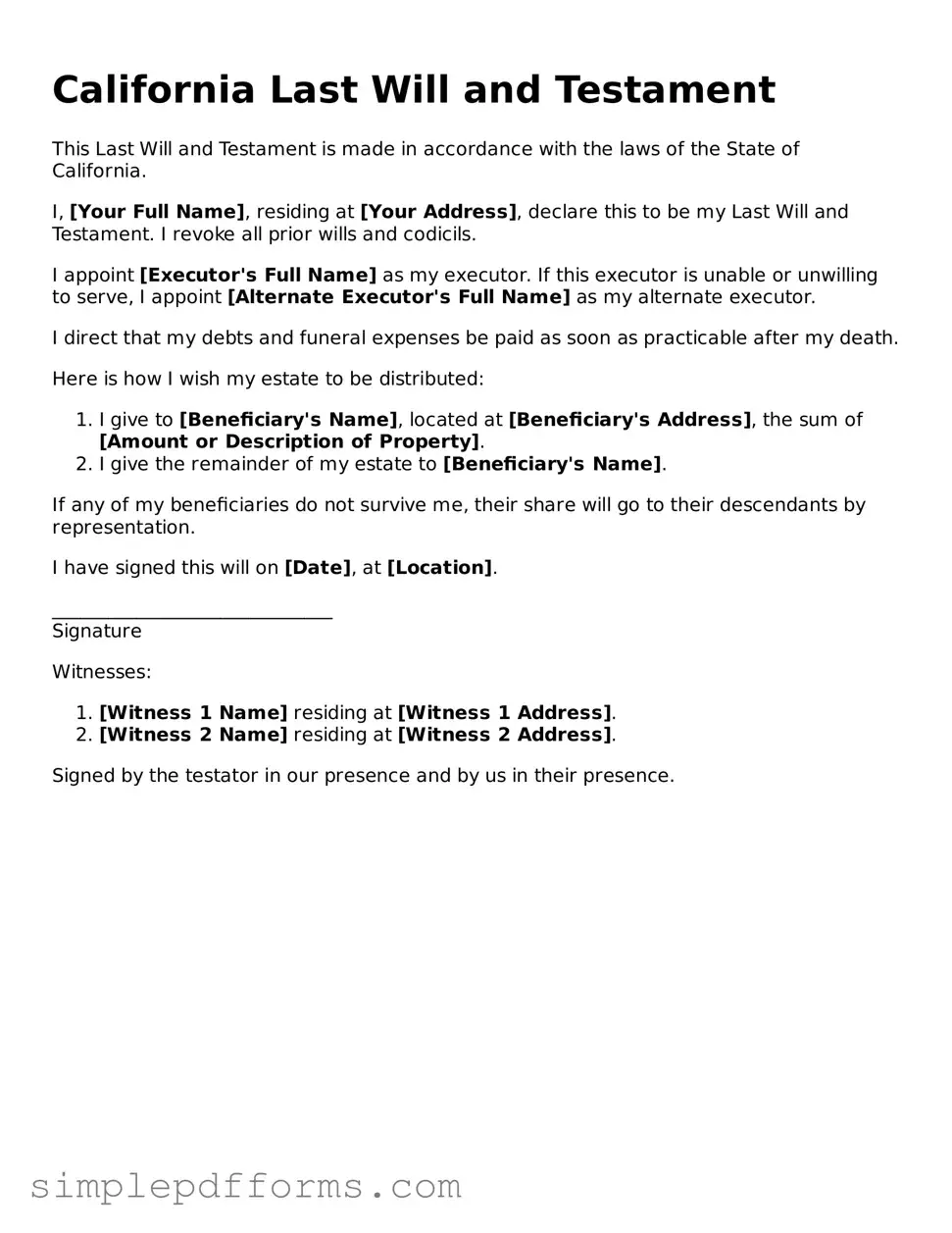Attorney-Verified Last Will and Testament Document for California State
A California Last Will and Testament form is a legal document that outlines an individual's wishes regarding the distribution of their assets after death. This form ensures that personal belongings, financial accounts, and other property are allocated according to the individual's preferences. Understanding this essential tool can provide peace of mind and clarity for both the testator and their loved ones.
Open Last Will and Testament Editor Now

Attorney-Verified Last Will and Testament Document for California State
Open Last Will and Testament Editor Now

Open Last Will and Testament Editor Now
or
Get Last Will and Testament PDF Form
Your form is waiting for completion
Complete Last Will and Testament online in minutes with ease.